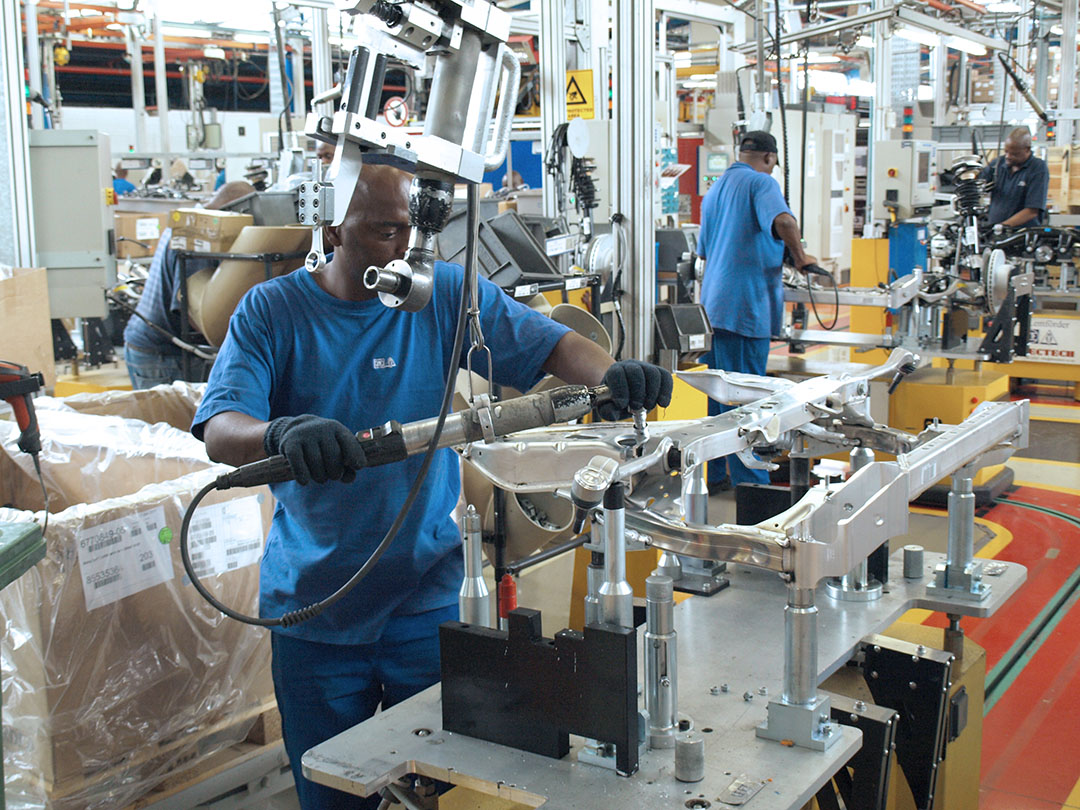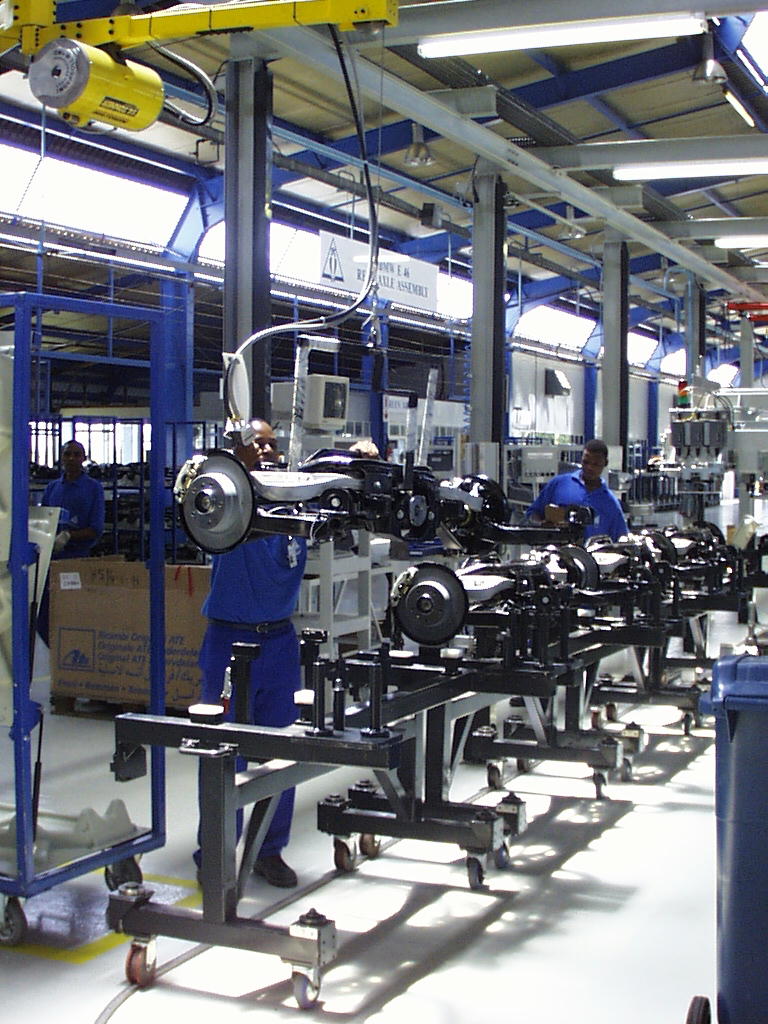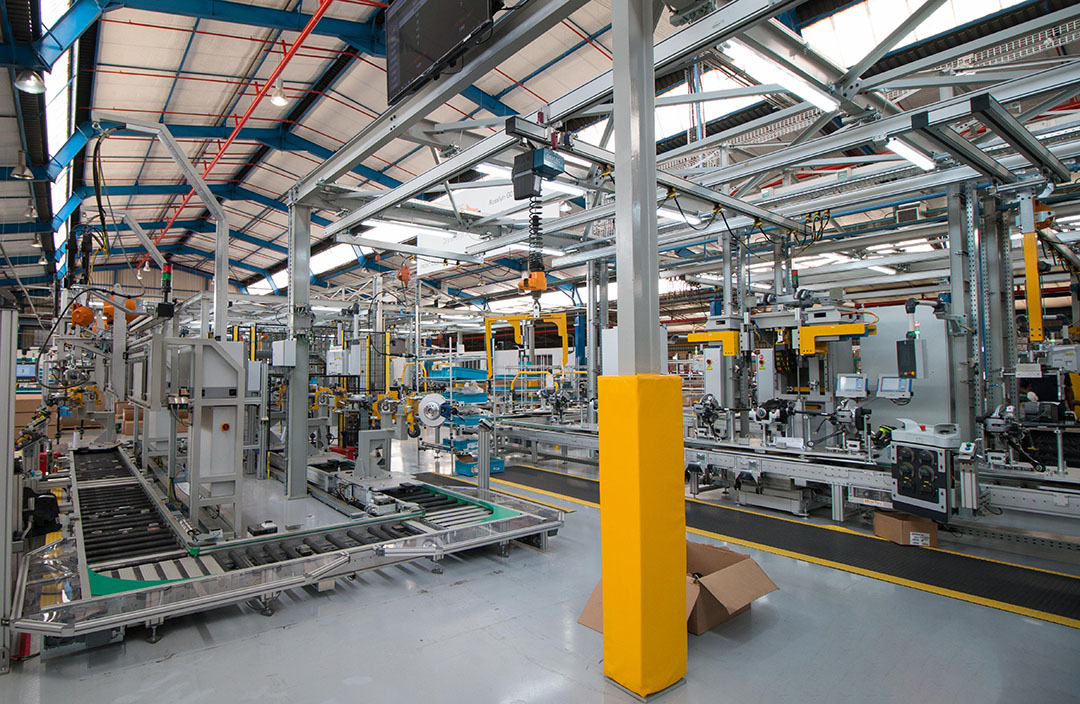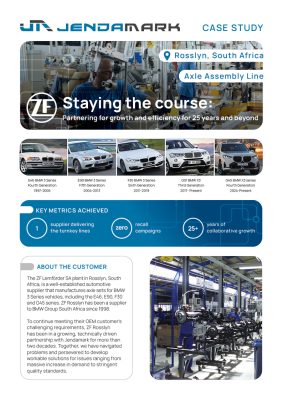- Case Study
- ZF

Axle Assembly Line
Staying the course:
Partnering for growth and efficiency for 25 years and beyond
How our evolving axle assembly solutions have resulted in zero recalls for ZF for 25+ years


- JENDAMARK DELIVERED
- Rosslyn, South Africa
About the Customer
The ZF Lemförder SA plant in Rosslyn, South Africa, is a well-established automotive supplier that manufactures axle sets for BMW 3 Series vehicles, including the E46, E90, F30 and G45 series. ZF Rosslyn has been a supplier to BMW Group South Africa since 1998.
To continue meeting their OEM customer’s challenging requirements, ZF Rosslyn has been in a growing, technically driven partnership with Jendamark for more than two decades.
Together, we have navigated problems and persevered to develop workable solutions for issues ranging from massive increase in demand to stringent quality standards.

E46 BMW 3 Series
Fourth Generation
1997-2006
E90 BMW 3 Series
Fifth Generation
2004-2013
F30 BMW 3 Series
Sixth Generation
2011-2019
G01 BMW X3
Third Generation
2017- Present
G45 BMW X3 series
Fourth Generation
2024-Present
Key Challenges
- Challenge 1
Assembly processes were almost entirely manual. Budgetary constraints meant the facility started operating with industrial trolleys pushed between stations because conveyor systems were too expensive.
- Challenge 2
Multi-variant production meant that the operators needed to remember which were the correct parts to select for each variant.
- Challenge 3
A lack of digital, data-driven technologies made it difficult to identify problem areas, improve production efficiencies and ensure process security.
- Challenge 4
Because operators could not read or write fluently, following written instructions and recording completed tasks was challenging.

- Challenge 5
The absence of digital data recording also meant that trends in failures of tools and processes could not be analysed to address problem areas for improvement.
Our Solution
As their customer’s plant transitioned to export BMWs globally, and as variants and requirements changed over the decades, ZF needed to adapt. Accordingly, Jendamark’s solutions and technologies evolved to support them.
Solution 1 – Production transport system: The advantage of the original low-cost trolley was that the operator could walk right around it and push it from station to station. Docking stations with sensors at each assembly station would read the RFID tag on the trolley and lock it in position until the process was completed. With this mechanism in place, the operator could not push the trolley to the wrong station, and we were able to ensure process security in a manual environment. Later, the industrial trolleys evolved into automated guided vehicles (AGVs).
Solution 2 – Pick-to-light sensors: Because each of the variants required parts that differed slightly – from callipers to steering columns – we introduced hundreds of pick-to-light sensors. Depending on the variant in the station, a light would flash to guide operators in selecting the correct option, which was simpler than written instructions.
Solution 3 – Digital technologies: By introducing digital technologies, we could record production data more effectively, and carry out additional process security and process validation checks to ensure that ZF delivered a quality product to BMW.
Solution 4 – Operator guidance system: When ZF’s customer introduced a new Bill of Materials according to which the axle components needed to be assembled, Jendamark built a digitally enhanced new line featuring the part management system we developed. The system, which became ODIN Workstation, also included an operator guidance system, with step-by-step visual work instructions for operators who struggled with basic literacy.
Solution 5 – Digital records: Because the new system included digital data logging, our team could analyse the data to track trends and failure rates for equipment like bolting tools, as well as the different processes. Having this data gave the customer information to address problem areas and improve production efficiencies.
Customer Benefits
- A one-stop shop solution from one supplier walking this entire journey with the customer.
- The customer gained control over their production process and retained BMW as a long-term customer.
- The lines featured assembly solutions like variant-orientated bolting and worker guidance, as well as quality solutions like tracking and traceability.
- To mitigate potential problems, planned rework strategies and a Disaster Recovery Programme (DRP) were implemented.
- The result was that no recall campaign was required in 25+ years.


